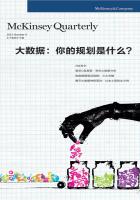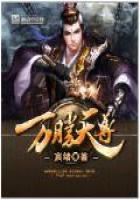"But Spare Your Country's Flag" If it be true that love is the great incentive to the useless arts, the number of gentlemen who became poets for the sake of Miss Betty Carewe need not be considered extraordinary. Of all that was written of her dancing, Tom Vanrevel's lines, "I Danced with Her beneath the Lights" (which he certainly had not done when he wrote them) were, perhaps, next to Crailey Gray's in merit, though Tom burned his rhymes after reading them to Crailey. Other troubadours were not so modest, and the Rouen Journal found no lack of tuneful offering, that spring, generously print- ing all of it, even at the period when it became epidemic. The public had little difficulty in recognizing the work of Mr. Francis Chenoweth in an anonymous "Sonnet" (of twenty-three lines) which appeared in the issue following Miss Carewe's debut. Mr. Chenoweth wrote that while dancing the mazourka with a Lovely Being, the sweetest feelings of his soul, in a celestial stream, bore him away beyond control, in a seraphic dream; and he untruthfully stated that at the same time he saw her wipe the silent tear, omitting, however, to venture any explanation of the cause of her emotion. Old General Trumble boldly signed his poem in full. It was called "An Ode upon Miss C--'s Waltzing," and it began:
"When Bettina found fair Rouen's shore, And her aged father to us bore Her from the cloister neat, She waltzed upon the ball-room floor, And lightly twirled upon her feet."
Mr. Carewe was rightfully indignant, and refused to acknowledge the General's salutation at their next meeting: Trumble was fifteen years older than he.
As Crailey Gray never danced with Miss Carewe, it is somewhat singular that she should have been the inspiration of his swinging verses in waltz measure, "Heart-strings on a Violin," the sense of which was that when a violin had played for her dancing, the instrument should be shattered as wine-glasses are after a great toast. However, no one, except the author himself, knew that Betty was the subject; for Crailey certainly did not mention it to Miss Bareaud, nor to his best friend, Vanrevel.
It was to some degree a strange comradeship between these two young men; their tastes led them so often in opposite directions. They had rooms to- gether over their offices in the "Madrillon Block" on Main Street, and the lights shone late from their windows every night in the year. Sometimes that would mean only that the two friends were talking, for they never reached a silent intimacy, but, even after several years of companionship, were rarely seen together when not in interested, often eager, conversation, so that people wondered what in the world they still found to say to each other. But many a night the late-shining lamp meant that Tom sat alone, with a brief or a book, or wooed the long hours with his magical guitar. For he never went to bed until the other came home.
And if daylight came without Crailey, Vanrevel would go out, yawning mightily, to look for him; and when there was no finding him, Tom would come back, sleepless, to the day's work. Crailey was called "peculiar" and he explained, with a kind of jovial helplessness, that he was always prepared for the unexpected in himself, nor did such a view detract from his picturesqueness to his own perusal of himself; though it was not only to himself that he was interesting. To the vision of the lookers-on in Rouen, quiet souls who hovered along the walls at merry-makings and cheerfully counted themselves spectators at the play, Crailey Gray held the centre of the stage and was the chief comedian of the place. Wit, poet, and scapegrace, the small society sometimes seemed the mere background set for his performances, spectacles which he, also, enjoyed, and from the best seat in the house; for he was not content as the actor, but must be the Prince in the box as well.
His friendship for Tom Vanrevel was, in a measure, that of the vine for the oak. He was full of levities at Tom's expense, which the other bore with a grin of sympathetic comprehension, or, at long intervals, returned upon Crailey with devastating effect. Vanrevel was the one steadying thing in his life, and, at the same time, the only one of the young men upon whom he did not have an almost mesmeric influence. In good truth, Crailey was the ringleader in all the devilries of the town. Many a youth swore to avoid the roisterer's company for all time, and, within two hours of the vow, found himself, flagon in hand, engaged in a bout that would last the night, with Mr. Gray out-bumpering the hardiest, at the head of the table. And, the next morning, the fevered, scarlet-eyed perjurer might creep shaking to his wretched tasks, only to behold the cause of his folly and headache tripping merrily along the street, smiling, clean- shaven, and fresh as a dew-born primrose, with, perchance, two or three of the prettiest girls in town at his elbow to greet his sallies with approving laughter.
Crailey had been so long in the habit of following every impulse, no matter how mad, that he enjoyed an almost perfect immunity from condemna- tion, and, whatever his deeds, Rouen had learned to say, with a chuckle, that it was "only Crailey Gray again." But his followers were not so privileged. Thus, when Mr. Gray, who in his libations sometimes developed the humor of an urchin, went to the Pound at three in the morning of New Year's Day, hung sleigh-bells about the necks of the cattle and drove them up and down the streets, himself hideously blowing a bass horn from the back of a big brown steer, those roused from slumber ceased to rage, and accepted the exploit as a rare joke, on learning that it was "only Crailey Gray;" but the unfortunate young Chenoweth was heavily frowned upon and properly upbraided because he had followed in the wake of the bovine procession, mildly attempting to play upon a flageolet.















